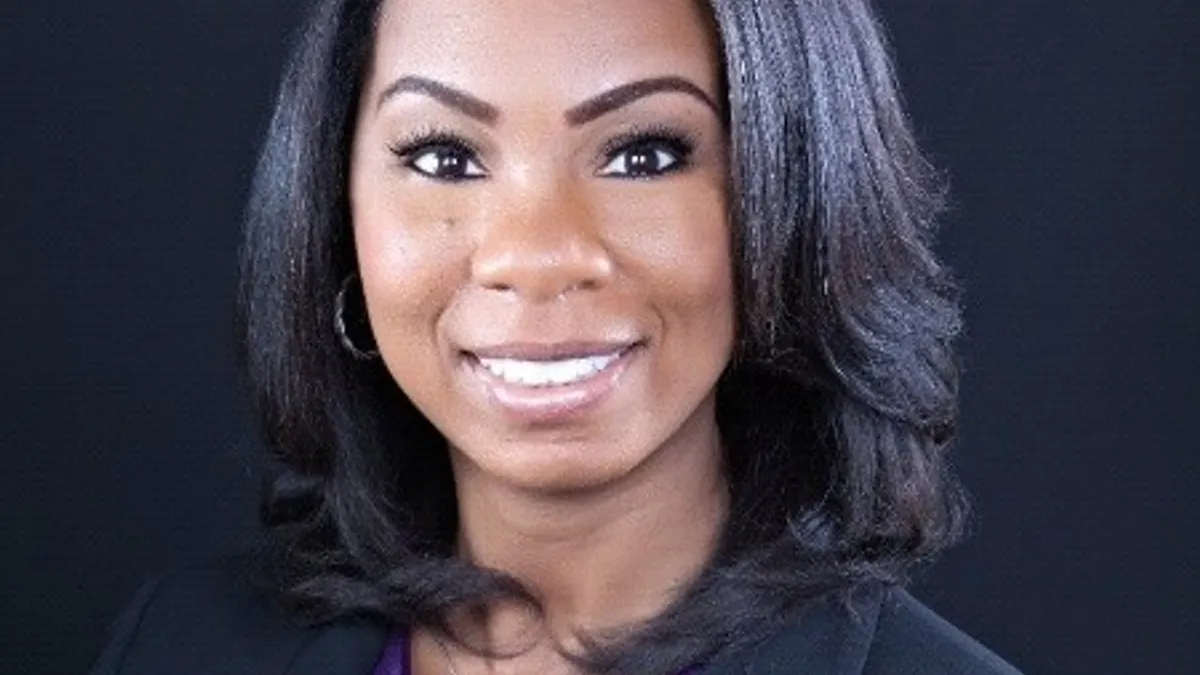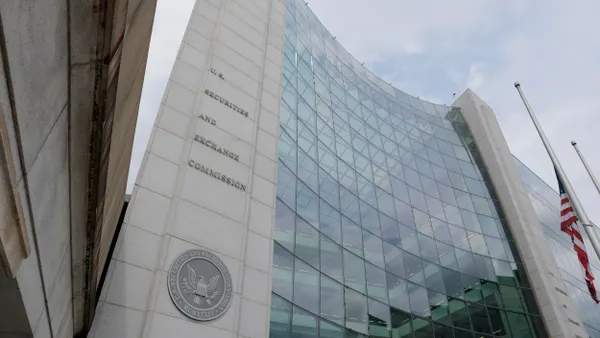Dive Brief:
- Public Company Accounting Oversight Board Chair Erica Williams resigned effective July 22 in the latest Trump administration shake-up of financial services regulation.
- The resignation announcement on Tuesday followed by less than a month a failed attempt by Republican lawmakers to eliminate the PCAOB, the watchdog for auditors of publicly-traded companies. Williams will step down three months after the swearing in of Paul Atkins — a critic of PCAOB oversight — as chair of the Securities and Exchange Commission.
- “With high economic uncertainty increasing the risk of fraud, the PCAOB’s mission is as important as ever,” Williams said in a statement. “It’s critical the expert PCAOB staff continue to be empowered to carry out their work of ensuring American investors are protected.”
Dive Insight:
Soon after taking office in January, President Donald Trump followed up on a campaign promise to soften regulation across the full range of U.S. industries by ordering the revocation of 10 federal rules for every new one implemented.
Financial services has been a frequent target this year of efforts to reduce oversight, with the White House leading shifts in top posts at the Federal Deposit Oversight Insurance Corporation, Office of Comptroller of the Currency and the Consumer Finance Protection Bureau.
Williams last month warned of the potential harm to investors from folding the PCAOB into the SEC, as initially planned in the massive tax-and-spending bill narrowly approved by Congress this month.
“The unique experience and expertise built up by the PCAOB over decades cannot simply be cut and pasted without significant risk to investors at a time when markets are already volatile,” Williams said in a speech. The provision to shift the PCAOB into the SEC was removed from the bill after it was determined to violate a Senate rule.
Weaker regulation of auditors may mean a slower pace of rulemaking than under Williams, according to Jennifer Wood, assurance service line leader at the Bonadio Group, a consulting firm.
“New or pending standards could undergo further cost-benefit review before implementation,” Wood said in an email response to questions.
Federal regulators in enforcement may focus on large lapses in audit quality and pay less attention to minor technical deficiencies, she said.
Also, during inspections, “there may be more risk-based approaches, focusing on higher-risk firms or engagements rather than broad coverage,” Wood said.
A merger of the PCAOB into the SEC, while potentially streamlining oversight, may dilute a specialized focus on audit, she said. “Maintaining audit-specific expertise is essential to preserving the quality of oversight.”
Efforts to eliminate the PCAOB faced resistance from business executives, academics and former regulators. The board, funded through levies on regulated accounting firms, was created by Congress in 2002 following multi-billion-dollar accounting scandals at Enron and WorldCom.
“Systemic risks metastasize in regulatory gaps,” Sherron Watkins and Cynthia Cooper, whistleblowers who, respectively, exposed Enron and WorldCom accounting fraud, said in a New York Times article in May. The PCAOB has performed “rigorous inspections” and made audits more consistent and credible, they said.
The Council of Institutional Investors, in a June 5 letter, urged Senate leadership to oppose efforts to fold the PCAOB into the SEC.
“We believe that even with sufficient funding and staff it would take several years to recreate current PCAOB programs at the commission, and there would be considerable disruption and lack of continuity along the way,” the CII said. “Just building an SEC staff to replace the 480 PCAOB staff that conduct audit firm inspections would be a challenge.”
The PCAOB for years has been in the cross-hairs of conservative think tanks and Republican lawmakers.
The board has “proved to be ineffective, costly, opaque and largely impervious to reform,” according to “Mandate for Leadership,” a key document written by Project 2025, a conservative initiative led by the Heritage Foundation aimed at influencing the Trump administration.
“To reduce costs and improve transparency, due process, congressional oversight and responsiveness,” the PCAOB should be abolished, with its regulatory role merged into the SEC, Project 2025 said.
Authors of the report cited Atkins among contributors who deserve “special mention.”















